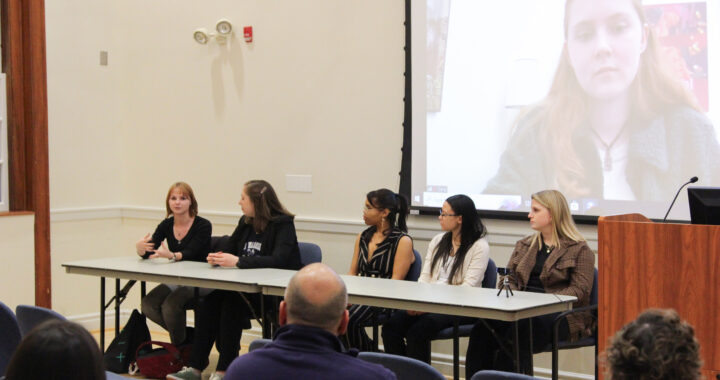Residence Life to hire new assistant director
4 min read
umw.edu | Residence Life
By AUGUSTUS GROHMANN
Staff Writer
On Thursday, Feb. 7, Mary Washington administrators met in the Colonnade Room to interview a potential candidate for the position of Assistant Director of Residence Life. This was the third of such meetings.
Although Dean Dave Fleming, the Assistant Dean of Resident Life and Housing, declined to comment on any individual candidates, he did outline some of what he would like to see in a candidate for the position.
“It’s difficult to tell you what I’m looking for in a candidate because candidates come in with all sorts of different skills and qualities. It really depends on the candidate. We’re evaluating each one very individually and not only determining what kinds of skill sets we can benefit from, but where can we also use current skill sets within department to complement that,” said Dean Fleming.
He went on to add that “There are a lot of different roles this person plays… I would say generally, someone with initiative, someone who wants to collaborate with those within the department and campus partners, and someone who is student focused – that’s very important.”
According to Fleming, the responsibilities of this role center on coordinating Resident Assistants (RAs) and Area Coordinators (ACs) as a direct supervisor, involvement in RA recruitment and assessment, forming Living Learning Communities, and supervising Residence Curriculum.
Residence Curriculum is a concept in Residence Life that is based on the notion that education should not stop when a student leaves the classroom, and that there are things to be learned by living in proximity to other students.
“Residence Curriculum weaves through everything we do here,” said Fleming.
When asked about the notion of Residence Curriculum, RA Sabine Wills said, “Residence Curriculum is something I didn’t realize existed until I became an RA…I think it’s intentionally made very subtle, so residents don’t know it’s happening, yet still gain the knowledge that comes from that.”
Wills feels that going forward, it is important to make sure the Residence Curriculum emphasizes providing a platform for students voices.
“I think there is an opportunity right now in the hiring of an AD and the hiring of two area coordinators as well as of course, the regular hiring of RAs, there comes an opportunity for new perspectives and new voices to be heard, which I think is gonna be good no matter what,” said Wills.
“I do think that whoever becomes the new AD and whoever the new ACs are should provide a little bit of a voice for the RAs, because protocol is very important and that’s all very good, but we should be making sure that resident’s voices and RAs’ voices are heard. Communication is super important when it comes to improvement within ResLife and outside of ResLife.”
Another potential change that is being considered with Residence Life, and would fall in line with the responsibilities of the future Assistant Director, is the creation and expansion of Living Learning Communities for upperclassmen.
The idea of a Living Learning Community is an umbrella term that can be applied to one of three different types of co-curricular residential learning experiences. The first type, which the majority of UMW students have experienced, is based on the Freshman Seminar classes and the residential structure based around them.
The second and third types of Living Learning Communities come in the form of Themed Living Communities, which are largely student organized and Department Sponsored Communities, which are organized by individual departments.
Although most students were exposed to Living Learning Communities in the form of Freshman Seminar Communities, very few have had regular interaction with them outside of their freshman year. Many of the students asked about Living Learning Communities were completely unaware that they were able to form their own Living Learning Communities in the form of Themed Learning Communities.
Residence Life is looking to increase student knowledge about the option of still residing in a Living Learning Community after freshman year.
“Our goal is to get as many students as we can in Living Learning Communities, because the data shows that they are more likely to graduate,” said Fleming.
A similar sentiment is reflected on the UMW website, which states that, “We know that students who live in close proximity to their classmates have a richer and more rewarding experience because learning does not stop at the classroom door. In fact, research shows that students who experience a small class featuring close interactions with a faculty member on topics of shared interest during their first semester get better grades and are more likely to complete their degree in a timely fashion.”
Wills feels that there should be more options for upperclassmen to stay in Living Learning Communities, but does not feel that they should be mandatory.
“I have heard some things about them, and, mostly good things honestly, I think there are plenty of campuses across the country that put a lot of investment into having Living Learning Communities,” said Wills. “I know that there are some campuses that do those exclusively. I don’t see anything wrong with LLCs, but I do think the universities where you have to live in a Living Learning Community are a little excessive. I think there definitely should be more options for them.”











